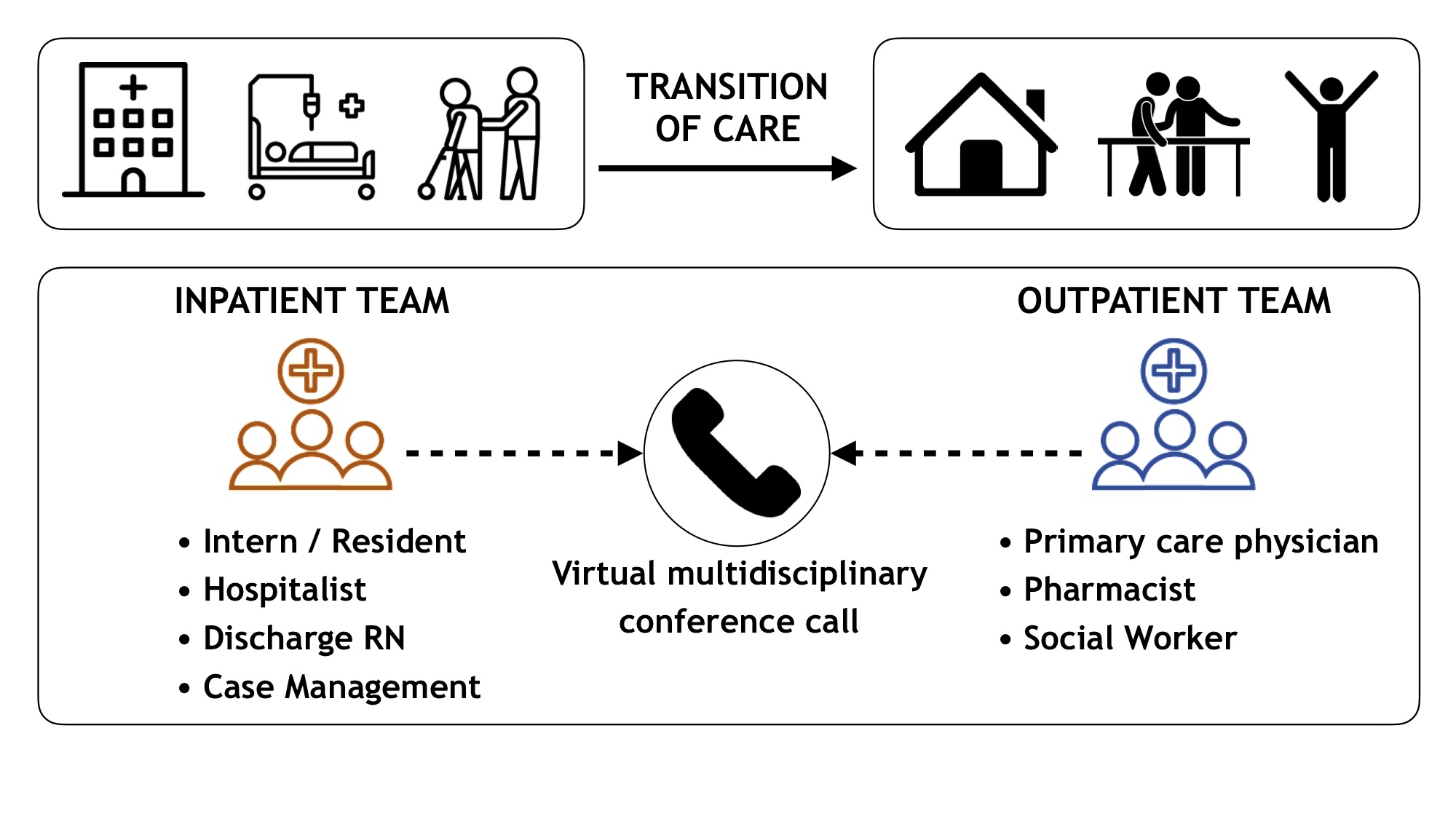Background: Literature regarding resident education in transitions of care is limited, particularly in geriatric populations. The University of Colorado performed a pilot of a virtual multidisciplinary conference call between providers on the geriatric inpatient unit of the University of Colorado Hospital and its Seniors Clinic. Residents rotating on the Acute Care of the Elder (ACE) unit of the hospital were asked to participate in weekly conferences discussing patients recently hospitalized and discharged from the hospital, to address clinical concerns pertaining to the transition of care. Our goal was to understand resident perceptions of the educational value of these multidisciplinary conferences and to determine if these conference calls changed their practice or attitudes pertaining to transitions of care.
Methods: We performed an IRB-approved qualitative study of internal medicine interns and residents who rotated on the ACE unit during 2018-2019. Structured interviews were recorded, transcribed verbatim, managed with ATLAS.ti software, and analyzed inductively using thematic analysis. Transcripts were reviewed and coded using a team-based iterative approach.
Results: Of the 32 internal medicine residents and interns who were invited to participate, 11 agreed to an interview. Three major themes emerged during these interviews: 1) Increased awareness of social complexities, 2) Deconstructing silos across care settings, and 3) Recognizing the value of different disciplines during transitions. A quote that exemplifies these three themes is: “It’s easy to just move on after you’ve just discharged a patient, your part is done, but I do think it’s useful to be reminded that these transitions are real people on the other end getting the documentation. What you do echoes in time for that person over weeks or months, or maybe their lifetime.” A common thread unifying all three themes was a sentiment of dawning awareness of educational blind spots.
Conclusions: This study highlights the benefit of multidisciplinary conference calls between inpatient and outpatient providers as a modality for residents to see the contribution of their care decisions in the broader spectrum of the patient’s experience at transition from the hospital. Educators can maximize the value of these multidisciplinary experiences by promoting reflective debriefs with residents to highlight the educational value of bringing to light previously unrecognized gaps in understanding about hospital discharge.

